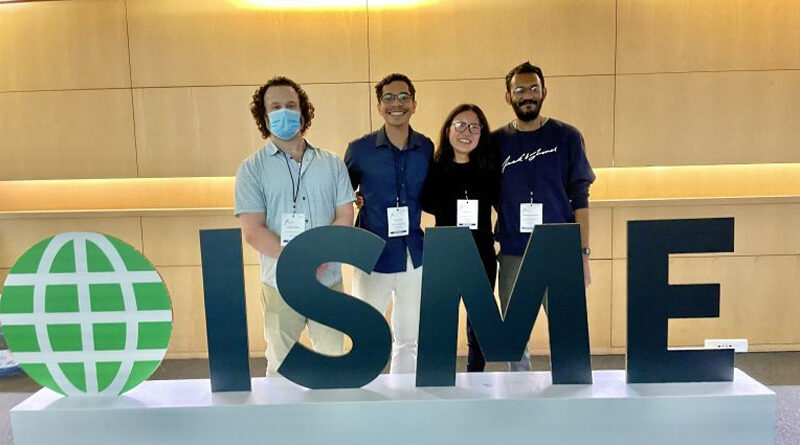Charlotte CIPHER Scientists Attend International Society for Microbial Ecology
The International Society for Microbial Ecology (ISME) meeting was held for the first time – since the conception of the meeting four decades ago – in Cape Town, South Africa, an inaugural place given its significance to microbial ecology and diversity of life on earth.
Cape Town lies near the southernmost point of South Africa, where two oceans collide . Here, the Indian and Atlantic oceans mix to create a rich marine ecosystem, fueling vibrant fisheries and marine life, from tiny microbes all the way to great whites. Although most of the mixing occurs invisible to the naked eye, we can see traces of this turbulence through the microbial communities clumping together at the surface, causing streaks of biomass visible to the naked eye from the tip of the peninsula.
Microbial communities in the marine environments remain some of the most understudied systems in the world, because their small sizes and novel genomes make it challenging to study their ecological impacts in the field. Scientists at CIPHER tackle some of these challenges at the ISME19 meeting.
Microbial Ecology Lab (Dr. Elaine Luo):
Paulo Freire, PhD student in Biology: Stable isotope probing (SIP) combined with metagenomics links genomic diversity with ecosystem function, such as microbes cycling carbon in the deep sea.
Moin Sheam, PhD Student in Biology: Giant viruses have genomes and physical sizes rivaling those of cells, and Moin’s work explores their diversity and ecology in the open ocean.
TJ Rogers, postdoctoral scholar in Biology: SIP-enabled metagenomics tracks carbon flow through multiple trophic levels to shed light on dark carbon cycling in a salt-stratified meromictic pond.

